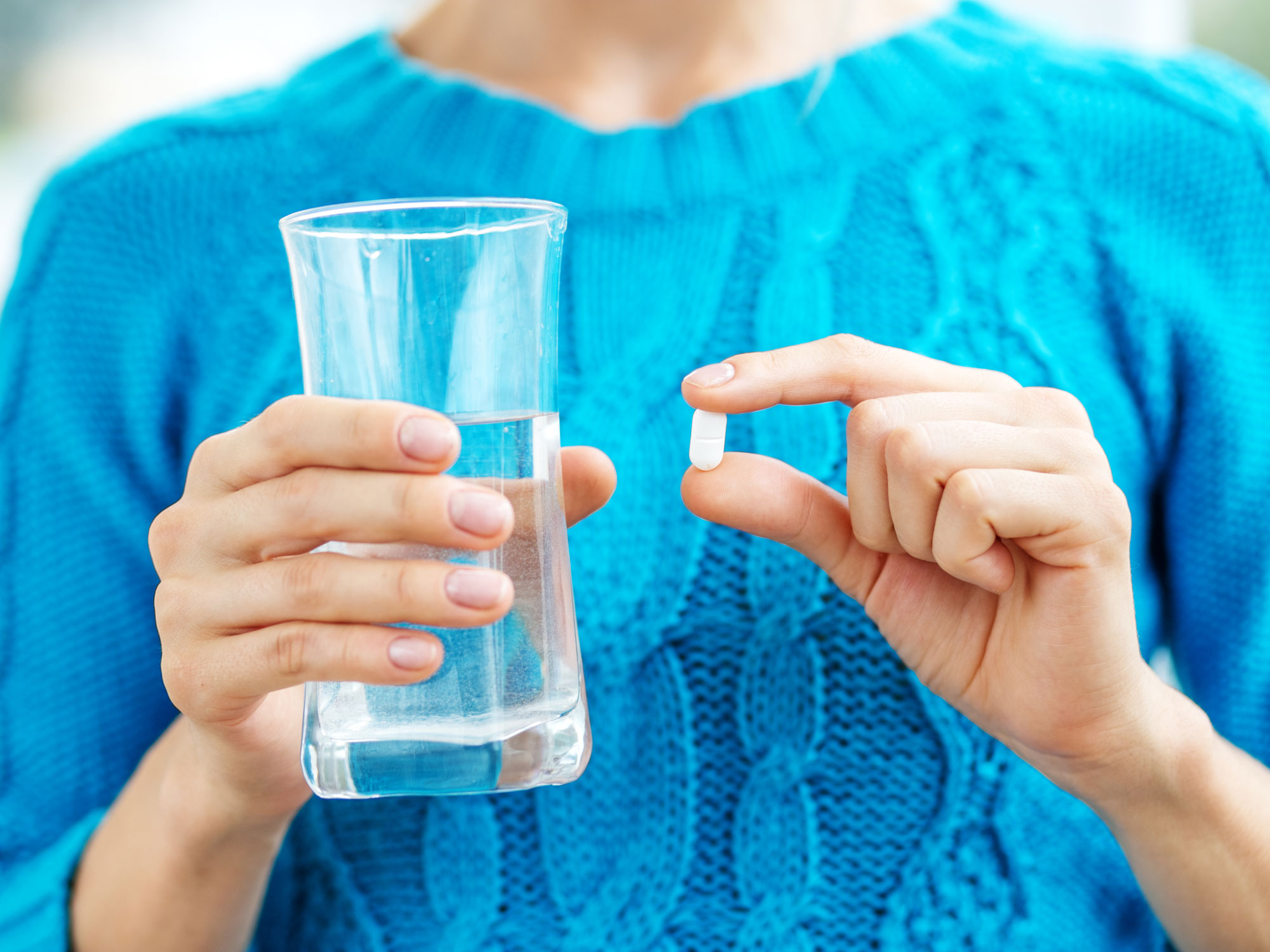Get Easy Health Digest™ in your inbox and don’t miss a thing when you subscribe today. Plus, get the free bonus report, Mother Nature’s Tips, Tricks and Remedies for Cholesterol, Blood Pressure & Blood Sugar as my way of saying welcome to the community!
Essential minerals every woman needs

Women have unique mineral needs that change throughout the life cycle.
And minerals perform a myriad of functions and are involved with every system, from structural elements of bone to glucose balance, nerve transmission and immune function.
Some minerals are needed in larger quantities, such as calcium and magnesium, which form structural components of bone…
Others, such as zinc, selenium, iodine and chromium are needed in smaller amounts but are essential cofactors performing a wide range of functions.
Mineral needs for women change with each stage of life; menstruating women have different needs than postmenopausal women. Mineral deficiencies are common and often unrecognized, especially with modern nutrient-poor diets, mineral depleted soils and the tendency to restrict foods with dieting. Deficiencies can contribute to many common health problems including hormone imbalances, osteoporosis, anemia and thyroid problems.
Our first consideration is making our diet as nutrient-rich as possible. In addition, taking a high-quality multivitamin/mineral supplement can help you reach the recommended amount of minerals you need to stay healthy, but should be chosen based on your stage of life and menstrual status.
What research is saying…
New research is redefining some of the commonly held doctrines on mineral supplementation. Front and center stage is calcium, which has long been at the forefront of controversy – how much supplementation is beneficial? Can supplementation cause harm?
Calcium is the most abundant mineral in the body and is required for healthy muscle function, nerve transmission, intracellular signaling, and hormonal secretion. Almost all the calcium in the body is stored in the bones and teeth, where it is vital for their support and structure. Bone is formed during the first 35 years of life, our bone bank accounts for the inevitable loss that occurs during and after menopause. So it’s critical for teens and young women to have an adequate intake of calcium and magnesium to build that reserve.
In addition to its benefits for the bones, calcium is also effective in lowering blood pressure, treating migraines and reducing symptoms of premenstrual syndrome. Seems like more is better but the latest research shows otherwise.
A newly released review of 33 clinical trials study involving over 50,000 older adults concluded that the use of supplements that included calcium, vitamin D, or both compared with placebo or no treatment was not associated with a lower risk of fractures.
Another very important finding is that too much calcium can increase risk of kidney stones, and cardiovascular disease. A 2010 analysis of 15 randomized controlled trials with over 5,000 participants linked calcium supplementation with an increased risk of heart attack. These findings apply specifically to calcium supplements, not to the usual dietary intake.
Clearly, these are important and controversial topics with research ongoing. The takeaway message thus far is to focus on good dietary sources of calcium and keep supplementation to around 400 mg/day rather than the usually recommended 1000 -1200 mg/day.
While some of the richest sources of calcium include dairy products such as milk, yogurt and cheese, these should not be your only sources, since dairy products are often hard to digest or are a source of food sensitivity or lactose intolerance. They also contain low levels of magnesium and high levels of phosphorus, whereas vegetable sources are higher in magnesium and other minerals to form a more balanced food source for minerals. Be sure to include an abundance of non-dairy sources such as sea vegetables, Chinese cabbage, kale and broccoli.
Magnesium
The critical importance of adequate magnesium is often overlooked with calcium getting all the attention. But magnesium is equally essential and is involved in more than 300 enzyme and metabolic reactions. Low levels in the body can cause irritability, headaches, muscle weakness, irregular heartbeat, muscle spasms or twitches, constipation, and insomnia. In addition to maintaining normal muscle and nerve function, magnesium helps to keep your heart rhythm steady and supports a healthy immune system.
Magnesium is as important as calcium in developing and maintaining bone health, so an ideal bone support supplement will contain equal amounts of both calcium and magnesium. Magnesium is also involved in energy metabolism and protein synthesis since the body requires it for completing certain chemical reactions pertaining to the metabolism of carbohydrates and fats.
Finally, magnesium is required for the synthesis of the antioxidant glutathione (your body’s master antioxidant), which is crucial for detoxification activities and a healthy immune system. Although supplements are available, nature provides a number of dietary sources of magnesium, including leafy green vegetables, seaweed or green algae, avocados, nuts, beans, raw chocolate, and grains such as brown rice and millet.
Some forms of calcium and magnesium have much better absorption than others, so in choosing a supplement, sources such as citrate, malate, chelate, and orotate are more easily absorbed.
Iron
Iron is part of the protein hemoglobin, which carries oxygen in the body, but is also found in the protein myoglobin, which makes oxygen available for muscle contractions. An iron deficiency causes a hindrance in the delivery of oxygen to the cells, which can result in fatigue, decreased immunity and anemia – a condition where red blood cells are immature, small or contain too little hemoglobin to carry the normal amount of oxygen to the tissues.
There are two forms of dietary iron, including heme and non-heme iron. Heme iron is derived from the protein in red blood cells that delivers oxygen to cells and is contained in animal foods such as red meats, fish and poultry. Non-heme iron is found in plant foods such as lentils, beans, blackstrap molasses, dried apricots, and raisins. Iron is a double-edged sword, however, as you need enough but not too much. Menstruating women are losing blood on a monthly basis, for example, and may require supplementation, whereas most postmenopausal women do not need supplemental iron.
Zinc
Zinc is another mineral that is vital to healthy living, as even a small deficiency can cause decreased immunity. This mineral is most widely known for preventing and shortening the duration of colds, which is due to its powerful ability to strengthen the immune system and increase white blood cell count.
Zinc is necessary for the function of many enzymes in the body, effectively assists in regulating hormones and has even been shown to increase fertility. This is a critical mineral in any supplement program, as it aids the body’s absorption of minerals such as calcium.
Finally, the anti-inflammatory and tissue healing benefits of zinc can help improve numerous conditions such as acne and poor skin health, among others. Dietary sources of zinc include oysters, most types of meat, beans, nuts, whole grains, as well as pumpkin seeds.
Iodine
Iodine was one of the first minerals recognized as essential to human health and is an essential constituent of thyroid hormones. Its deficiency causes different disorders that include goiter, hypothyroidism, reduced fertility and alteration in growth, physical and neurological development. It is especially important for women who are pregnant to monitor both their iodine levels as well as levels in their babies in order to prevent certain developmental problems. Deficiencies of iodine and selenium are thought to contribute to thyroid problems. Foods that provide the body with healthy levels of iodine, including most types of seafood, clams, lobster, oysters, and sardines, as well as seaweeds. This is another mineral where too much of a good thing can be as harmful as too little. Consult your health care practitioner before taking iodine supplements.
Selenium
Selenium is another crucial mineral for optimum health, important for glucose uptake and regulation of metabolic processes including glycolysis, gluconeogenesis and fatty acid synthesis, and is essential for immune function. Selenium, in addition to iodine, is essential for thyroid hormone synthesis and function. Selenium also plays a role in reducing oxidative stress and inflammation. Selenium deficiency can result in a number of functional disorders, including skeletal muscle dysfunction, cardiac dysfunction and pancreatic degeneration. Selenium acts as an antioxidant against free radicals that damage DNA and is often included with Vitamins C and E to help fight against cancer, heart disease and to promote healthy aging. Natural food sources high in selenium include cereals, Brazil nuts, legumes, beef, chicken, eggs, and cheese.
Making sure you are getting sufficient amounts of essential minerals and vitamins, healthy sources of fat and protein and complex carbohydrates is a good way to set a solid foundation for health at all stages of life. Add in a wisely chosen supplement regimen to support this strong foundation to promote increased antioxidant activity, improved digestion, healthy inflammation response, healthy glucose metabolism, healthier lipid profiles and increased immune activity = more vitality and well-being.
Editor’s note: Did you know that when you take your body from acid to alkaline you can boost your energy, lose weight, soothe digestion, avoid illness and achieve wellness? Click here to discover The Alkaline Secret to Ultimate Vitality and revive your life today!













